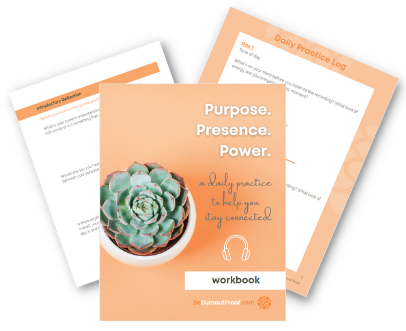Doing Your Year End Reflection
2021.11.30
There is no shortage of ways to go about reflecting on your year. Here are some of my favorites.
Ways to Look Back on Your Year
Interview Yourself
Suppose a profile piece is being written about you and ask yourself the following questions. Be willing to be surprised by your answers! This can be a fun activity to do with a friend/colleague over a celebratory drink or even with your team.
- In only three words, sum up your year.
- What was the high point for you this year? What did it feel like?
- What was the most interesting thing that happened this year? What about it holds your attention?
- What is the funniest thing that happened this year?
- What was the biggest challenge that you overcame? Who did you have to become in order to make it happen?
- If your year had a theme song, what would it be?
- In what ways are you a different person than you were at the start of the year.
- What advice would you give yourself for next year?
Calendar Prompts
Go through your calendar and see what grabs your attention in terms of things to celebrate or ponder.
Look through each week of January to remember what was going on. Take yourself back to your January Self. Then come up with:
- a descriptive theme for January (e.g., the calm before the storm; a time of high hopes; biggest dumpster fire I’ve ever seen; hella productive; etc.)
- a piece of advice you wish you could have given your January Self something you learned
- Repeat for each month.
Then review each month’s theme, advice, and learning and summarize your year.
This exercise can be nice to do over a few weeks. Review each month on a separate day and then come back and do the year review.
Goals and Intentions
And of course, check in on any changes you intended to make or goals you had set.
In addition to celebrating any wins (big or small), focus on acknowledging any steps you took and what you learned in the process. Just because you didn’t achieve/finish something you had initially set out to doesn’t mean you’ve failed in any way. New information, changing circumstances, and a host of other factors are part of our messy reality as modern humans.
Values and Needs
Needs
Every person has psychological needs: belonging, safety/security, purpose, autonomy, connection, and expression. Fulfillment of these needs drives our thoughts and behaviors – consciously or subconsciously. We each meet these needs in different ways.
I’m a big fan of checking in on how well my needs are being met by my work. Here is a handy worksheet to assess how well your job is meeting your needs.
Values
If you’ve previously identified/clarified your personal values*, then reflect on the year within the context of each one separately.
For example, if humor is one of your top values then you might consider:
the extent to which you were able to find humor in your daily life this year how you directed your resources (e.g., time, money) toward activities that promoted/cultivated humor what you’d like to do next year to engender more humor in your life *If you’ve never stopped to identify your values, stay tuned – I’ll be publishing some posts on that in the future. You can also do an internet search and find some great exercises in the meantime.
In my opinion, the only way to do this wrong is to be too hard on yourself for any perceived or real shortcomings. It’s normal to want to do better but let it come from a place of desiring to grow and evolve into your best Self and not from a punitive place.
